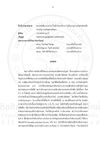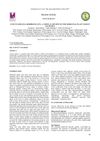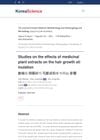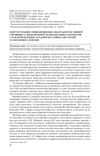1 citations,
April 1986 in “The Journal of Dermatology” Plant worm extract speeds up hair growth in mice without side effects.
 1 citations,
September 1984 in “Journal of Biological Education”
1 citations,
September 1984 in “Journal of Biological Education” Plants change their growth in response to shade based on light signals detected by phytochrome.
May 2024 in “Molecules/Molecules online/Molecules annual” Plant extracts can help prevent hair loss and promote hair growth.
 May 2024 in “Current perspectives on medicinal and aromatic plants”
May 2024 in “Current perspectives on medicinal and aromatic plants” Plant-based treatments might help with hair loss and have fewer side effects than synthetic drugs.
 February 2024 in “Frontiers in plant science”
February 2024 in “Frontiers in plant science” Peps help Arabidopsis plants grow more root hairs by affecting specific genes and calcium signaling.
 January 2024 in “Elsevier eBooks”
January 2024 in “Elsevier eBooks” Plant biomass materials are effective and eco-friendly for skin and hair care in cosmetics.
 July 2023 in “CRC Press eBooks”
July 2023 in “CRC Press eBooks” Plant-based substances like chamomile and aloe vera may help treat PCOS symptoms.
January 2023 in “International Research Journal of Ayurveda & Yoga” Ayurvedic plant ingredients effectively treat hair problems with fewer side effects.
 December 2022 in “Journal of Experimental Biology and Agricultural Sciences”
December 2022 in “Journal of Experimental Biology and Agricultural Sciences” Using certain plant growth regulators together improves the cloning of the medicinal plant Eclipta alba.
 May 2022 in “International Journal of Biochemistry Research and Review”
May 2022 in “International Journal of Biochemistry Research and Review” Plant-based biotin from SesZenBioTM could be twice as effective as synthetic biotin for hair care.
 November 2020 in “Black Sea scientific journal of academic research”
November 2020 in “Black Sea scientific journal of academic research” Some plants can help treat skin conditions.

Safflower extract in nanostructured carriers was more effective than minoxidil for hair growth without irritating skin.
June 2022 in “Journal of Cosmetic Dermatology” Acanthus ebracteatus extract may help prevent hair loss.
August 2021 in “Asian Journal of Pharmaceutical and Clinical Research” Plant extracts in shampoo improved hair thickness and density in men with hair loss.
 January 2021 in “Journal of cosmetology & trichology”
January 2021 in “Journal of cosmetology & trichology” The treatment improved hair growth and thickness in patients with hair loss, even 10 months after therapy without additional products.
 38 citations,
July 2012 in “international journal of endocrinology and metabolism”
38 citations,
July 2012 in “international journal of endocrinology and metabolism” Some plant-derived compounds may help with hormonal conditions, but more research is needed to confirm their effectiveness.
 12 citations,
June 2011 in “Han-guk sikpum gwahakoeji/Han'gug sigpum gwahag hoeji/Han-guk sikpum gwahak hoeji”
12 citations,
June 2011 in “Han-guk sikpum gwahakoeji/Han'gug sigpum gwahag hoeji/Han-guk sikpum gwahak hoeji” Lactobacillus plantarum-fermented plant extracts promote hair growth and thickness.
 4 citations,
December 2017 in “International journal of research in ayurveda and pharmacy”
4 citations,
December 2017 in “International journal of research in ayurveda and pharmacy” The dodder plant has anti-inflammatory, antimicrobial properties, and may promote hair growth.
3 citations,
December 2015 in “Asian journal of dermatology” Natural plant extracts with sweet flag can significantly reduce hair loss and increase hair density and thickness in people with alopecia.
3 citations,
July 2015 in “International journal of pharmacology” Natural plant extracts help prevent hair loss and promote hair growth.
 2 citations,
May 2022 in “Horticulturae”
2 citations,
May 2022 in “Horticulturae” A plant protein biostimulant improved growth, photosynthesis, and nutrient content in hydroponically grown basil.
 1 citations,
October 2017
1 citations,
October 2017 Suruhan extract made rabbit hair grow longer but didn't increase hair thickness.
1 citations,
January 2017 in “Journal of Dermatology and Venereology” The plant extract and minoxidil both reduce hair loss by lowering specific gene expressions.
 1 citations,
January 2002 in “The Journal of Korean Medicine Ophthalmology and Otolaryngology and Dermatology”
1 citations,
January 2002 in “The Journal of Korean Medicine Ophthalmology and Otolaryngology and Dermatology” Some plant extracts may help hair grow.
 May 2024 in “Research Square (Research Square)”
May 2024 in “Research Square (Research Square)” Many women in Northern Ghana use plant-based cosmetics like shea butter, and their use is more related to being married than to their job, education, or house.

Maidenhair fern extract might help treat COVID-19 symptoms, but more research is needed.

The extract from the plant Adiantum capillus-veneris might be used to treat COVID-19.

Suruhan plant extract may increase hair length but not hair mass in rabbits.
 January 2015 in “Farmatsevtychnyĭ zhurnal”
January 2015 in “Farmatsevtychnyĭ zhurnal” The tincture made from nettle, sage, and horse chestnut in a 5:3:2 ratio is effective for treating telogen effluvium.
 161 citations,
August 2013 in “Journal of experimental botany”
161 citations,
August 2013 in “Journal of experimental botany” Certain inhibitors slow down plant growth by causing early cell specialization without changing the cell development pattern.





















